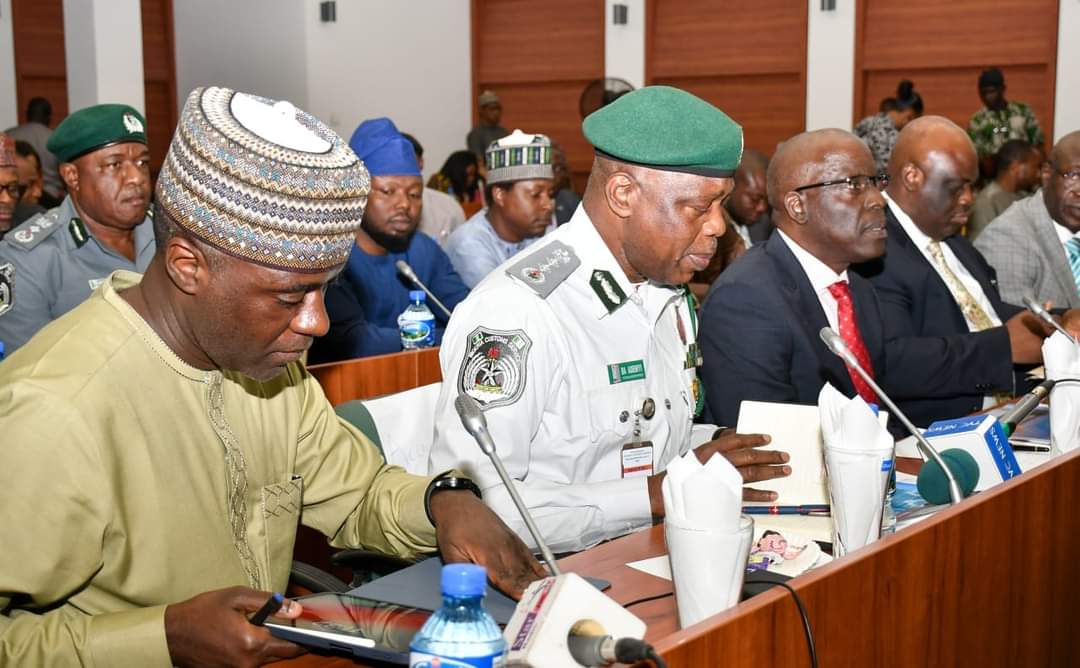2024 budget: Reps Appropriation C'ttee meets top govt officials over revenue shortage

...resolves to support Tinubu-led govt to succeed
The House of Representatives’ Committee on Appropriations, on Monday, met with top officials in the Executive arm of the Federal Government on how to drive revenue towards implementing the 2024 budget.
The committee told the officials that the only way the budget could be successfully implemented was to task the Government Owned Enterprises (GOEs) with generating more revenue.
Those who appeared before the committee included the Minister of Finance and Coordinating Minister of the Economy, Mr Wale Edun; Comptroller-General, Nigeria Customs Service, Mr Adewale Adeniyi; Minister of State for Petroleum Resources (Gas), Hon. Ekperikpe Ekpo; Chief Executive Officer, Nigerian Upstream Petroleum Regulatory Commission (NUPRC) Engr. Gbenga Komolafe; and the Executive Vice-Chairman, Nigerian Communications Commission (NCC), Dr Aminu Maida, among others.
President Bola Ahmed Tinubu, GCFR, had on Wednesday, November 29, 2023, laid the 2024 Appropriation Bill – the proposed budgetary estimates totalling N27.5trillion for the next fiscal year – before a joint session of the National Assembly.
The Chairman of the House Appropriations Committee, Hon. Abubakar Kabir Bichi, in his opening remarks at the stakeholders’ engagement, noted that successful implementation of the annual budgets would determine the success of the Renewed Hope Agenda of the President Bola Ahmed Tinubu administration.
The chairman said: “We called this meeting in respect of the 2024 Appropriation Bill presented by Mr. President, Asiwaju Bola Ahmed Tinubu, to the National Assembly for consideration. As you are all aware, the (total) sum of N27trillion has been earmarked for 2024.
“The N27trillion may look very big. Considering our inflation, exchange rates and all that, we believe that we really have to look into it and support Mr. President to actualise his eight-point (Renewed Hope) agenda. No matter how Mr. President wants to actualise his agenda, he needs some funds. And the only way for him to get money is through all these GOEs…to see how we can interact with them and how we can have more funds to support Mr. President to actualise his dreams.
“That was the reason why we said let’s call all the GOEs and the Honourable Minister of Finance to see how we can move on…how we can get more revenue to support Mr. President, to actualise his dreams for Nigeria. We believe that the budget, without funding, is going to be a serious problem. We need to find a way that we can increase the funds (revenue) so that Mr. President can be able to achieve his objectives.”
Members of the committee asked question bordering on Nigeria’s low revenue from oil when compared to other oil-producing countries, performance of the 2023 Appropriation Act and the 20023 Supplementary Appropriation Act, especially regarding releases for recurrent and capital expenditure, and data on the Integrated Payroll and Personnel Information System (IPPIS).
Responding to some of the questions, Finance Minister, Edun, told the committee that the government was aware of its revenue-to-debt limitations, agreeing with the lawmakers on the need to increase revenue generation.
Speaking on the proposed 2024 budget, the minister said “its estimates are reasonable, when you look at the estimates for oil production, exchange rate and borrowings.” He added: “The estimates and projections are reasonable; they show a direction of travel which includes a reduction of fiscal deficit from 6.1 per cent to 3.88 per cent, likewise an increase in the capital share of the budget. This speaks to the very first question…”
While admitting that the low revenue might frustrate capital projects, Edun said: “The government revenue percentage of GDP is still under 10 per cent, compared to the average for the African countries, which hovers around 15 to 18 per cent, and in some cases it is over 25 per cent. Clearly, the government does not have enough revenue to fund the critical infrastructure…
“This is an acceptance and understanding that the fiscal space is constrained; that the capacity – the leeway – for relying on borrowing, whether domestic or foreign, is limited. So, the emphasis is on domestic mobilisation; the emphasis is getting the government revenue up.”

